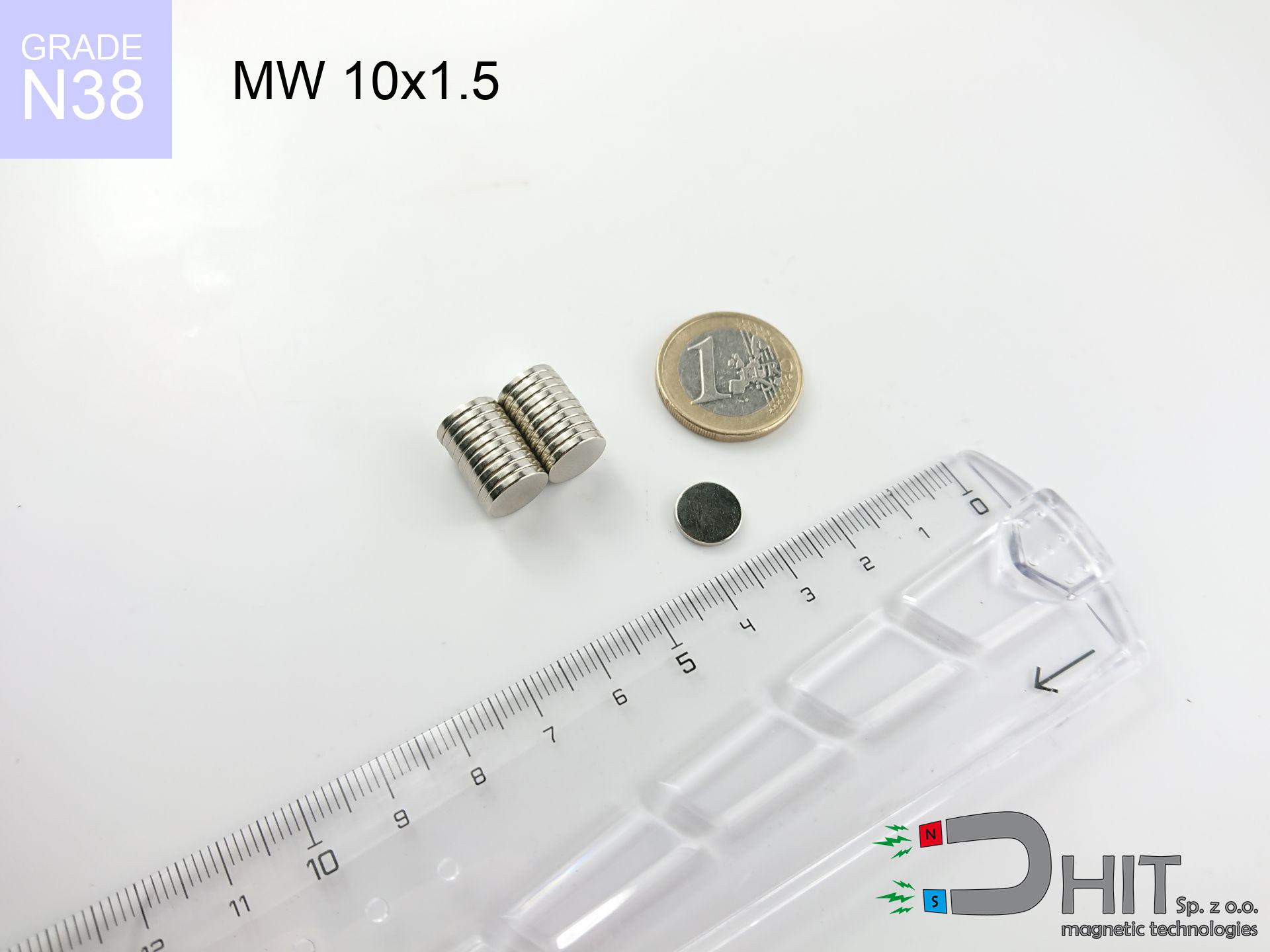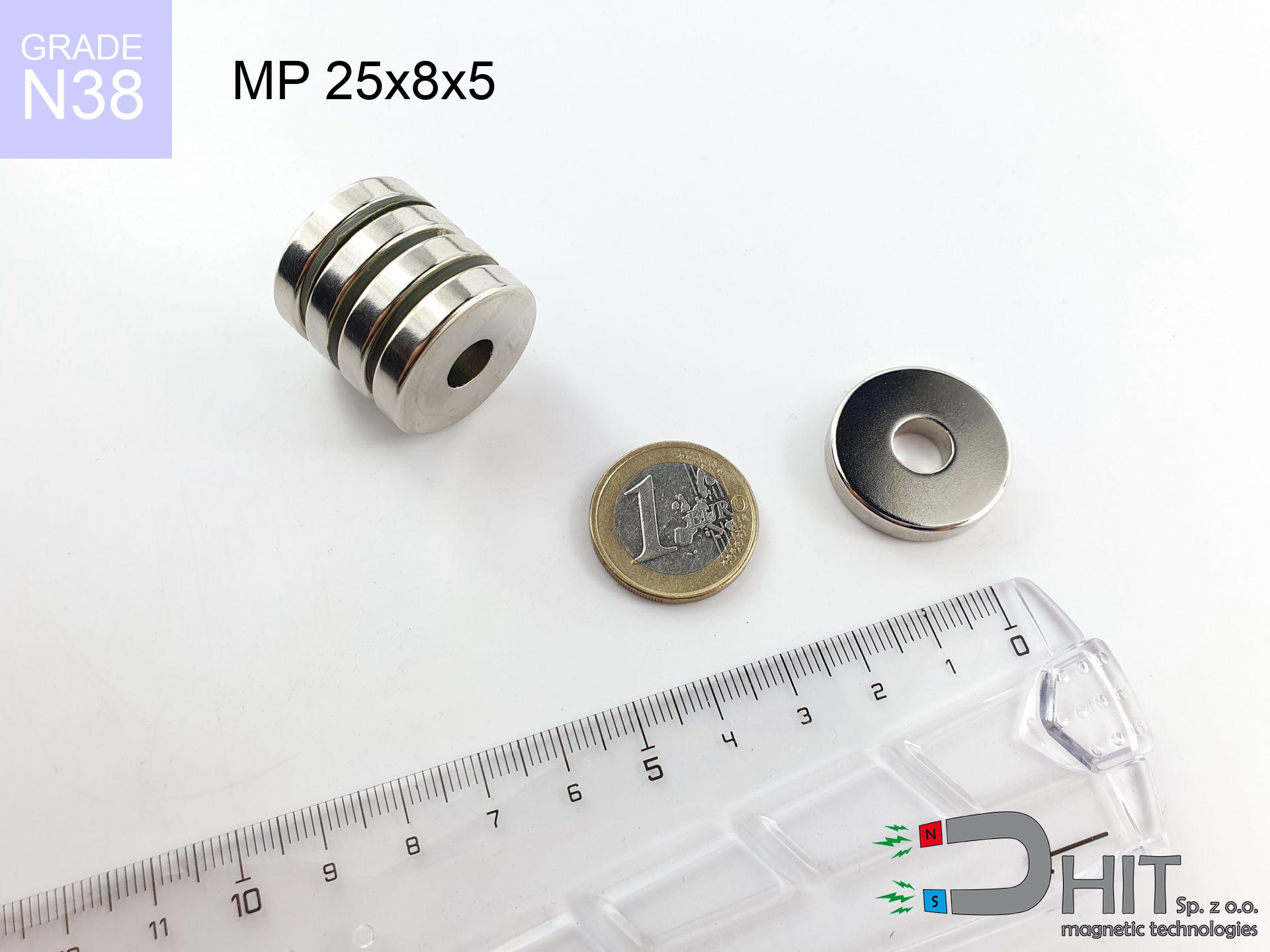LM TLN - 20 R
magnetic leviton
catalog number 290492
GTIN: 5906301814504
catalog number 290492
GTIN: 5906301814504
400.00 ZŁ gross price (including VAT) / pcs +
325.20 ZŁ net price + 23% VAT / pcs
Do you have difficulties in choosing?
Call us tel: +48 888 99 98 98 or write through contact form on the contact page. You can check the mass and the shape of magnet in our force calculator force calculator
Orders placed by 2:00 PM will be shipped on the same business day.
Specification: magnetic leviton TLN - 20 R
Choose recommended products
Advantages and disadvantages of neodymium magnets NdFeB.
In addition to immense strength, neodymium magnets have the following advantages:
- They do not lose strength over time. After 10 years, their strength decreases by only ~1% (theoretically),
- They are exceptionally resistant to demagnetization caused by an external magnetic field,
- By applying a shiny coating of nickel, gold, or silver, the element gains an aesthetic appearance,
- They have very high magnetic induction on the surface of the magnet,
- Magnetic neodymium magnets are characterized by hugely high magnetic induction on the surface of the magnet and can operate (depending on the shape) even at temperatures of 230°C or higher...
- Thanks to the flexibility in shaping or the ability to adapt to specific requirements – neodymium magnets can be produced in many variants of shapes or sizes, which amplifies their universality in usage.
- Significant importance in the industry of new technologies – are used in computer drives, electric motors, medical equipment and very modern machines.
Disadvantages of neodymium magnets:
- They are prone to breaking as they are fragile when subjected to a strong impact. If the magnets are exposed to impacts, it is suggested using magnets in a protective case. The steel housing in the form of a holder protects the magnet from impacts and simultaneously increases its overall strength,
- High temperatures can reduce the power of neodymium magnets. Typically, after heating above 80°C, most of them experience a permanent reduction in strength (although it is dependent on the form and size). To prevent this, we offer special magnets marked with the symbol [AH], which are highly resistant to high temperatures. They can operate even at temperatures up to 230°C, making them an ideal solution for applications requiring high-temperature operation,
- Due to their susceptibility to corrosion in a humid environment, we recommend using waterproof magnets made of rubber, plastic, or other moisture-resistant materials when using them outdoors,
- The use of a cover or a magnetic holder is recommended due to the limited possibilities of manufacturing threads or complex shapes in the magnet
- Possible danger to health from tiny fragments of magnets are risky, when accidentally ingested, which is particularly important in the aspect of protecting young children. Furthermore, small elements of these products can complicate diagnosis after entering the body.
Precautions
Avoid contact with neodymium magnets if you have a nickel allergy.
Studies show a small percentage of people have allergies to certain metals, including nickel. An allergic reaction often manifests as skin redness and rash. If you have a nickel allergy, you can try wearing gloves or simply avoid direct contact with nickel-plated neodymium magnets.
Neodymium magnetic are fragile as well as can easily break and shatter.
Magnets made of neodymium are extremely delicate, and by joining them in an uncontrolled manner, they will break. Neodymium magnets are made of metal and coated with a shiny nickel, but they are not as durable as steel. In the event of a collision between two magnets, there may be a scattering of fragments in different directions. Protecting your eyes is crucial in such a situation.
Dust and powder from neodymium magnets are flammable.
Do not attempt to drill into neodymium magnets. Mechanical processing is also not recommended. If the magnet is crushed into fine powder or dust, it becomes highly flammable.
Neodymium magnets are the strongest magnets ever invented. Their strength can surprise you.
Familiarize yourself with our information to correctly handle these magnets and avoid significant swellings to your body and prevent disruption to the magnets.
Keep neodymium magnets away from TV, wallet, and computer HDD.
Strong fields generated by neodymium magnets can damage magnetic storage media such as floppy disks, credit cards, magnetic ID cards, cassette tapes, video tapes, or other similar devices. They can also damage televisions, VCRs, computer monitors, and CRT displays. Avoid placing neodymium magnets in close proximity to electronic devices.
Neodymium magnets are not recommended for people with pacemakers.
Neodymium magnets generate strong magnetic fields. As a result, they interfere with the operation of a pacemaker. This is because many of these devices are equipped with a function that deactivates the device in a magnetic field.
Magnets are not toys, youngest should not play with them.
Not all neodymium magnets are toys, so do not let children play with them. Small magnets pose a serious choking hazard or can attract to each other in the intestines. In such cases, the only solution is to undergo surgery to remove the magnets, and otherwise, it can even lead to death.
Do not bring neodymium magnets close to GPS and smartphones.
Neodymium magnets are a source of strong magnetic fields that cause interference with magnetometers and compasses used in navigation, as well as internal compasses of smartphones and GPS devices.
Neodymium magnets can demagnetize at high temperatures.
Although magnets have shown to retain their effectiveness up to 80°C or 175°F, this temperature may vary depending on the type of material, shape, and intended use of the magnet.
Neodymium magnets are primarily characterized by their significant internal force. They attract to each other, and any object that comes in their way will be affected.
In the case of holding a finger in the path of a neodymium magnet, in that situation, a cut or a fracture may occur.
Please read the article - What danger lies in neodymium magnets? You will learn how to handle them properly.


![magnetic separator 32x325 [2xM8] / N52 magnetic separator 32x325 [2xM8] / N52](https://cdn3.dhit.pl/graphics/products/sm-32x325-2xm8-xec.jpg)


![magnetic separator 25x200 [2xM8] / N42 magnetic separator 25x200 [2xM8] / N42](https://cdn3.dhit.pl/graphics/products/sm-25x200-2xm8-dos.jpg)

